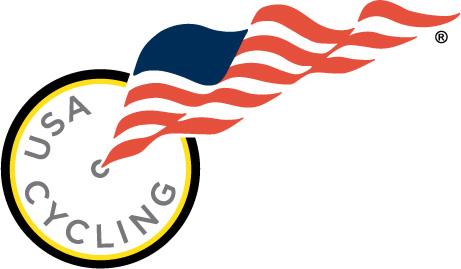- News
- Reviews
- Bikes
- Components
- Bar tape & grips
- Bottom brackets
- Brake & gear cables
- Brake & STI levers
- Brake pads & spares
- Brakes
- Cassettes & freewheels
- Chains
- Chainsets & chainrings
- Derailleurs - front
- Derailleurs - rear
- Forks
- Gear levers & shifters
- Groupsets
- Handlebars & extensions
- Headsets
- Hubs
- Inner tubes
- Pedals
- Quick releases & skewers
- Saddles
- Seatposts
- Stems
- Wheels
- Tyres
- Tubeless valves
- Accessories
- Accessories - misc
- Computer mounts
- Bags
- Bar ends
- Bike bags & cases
- Bottle cages
- Bottles
- Cameras
- Car racks
- Child seats
- Computers
- Glasses
- GPS units
- Helmets
- Lights - front
- Lights - rear
- Lights - sets
- Locks
- Mirrors
- Mudguards
- Racks
- Pumps & CO2 inflators
- Puncture kits
- Reflectives
- Smart watches
- Stands and racks
- Trailers
- Clothing
- Health, fitness and nutrition
- Tools and workshop
- Miscellaneous
- Buyers Guides
- Features
- Forum
- Recommends
- Podcast
news
 USA Cycling logo
USA Cycling logoUSA Cycling backs down on allowing two-way radios in face of UCI opposition
USA Cycling, the sport’s governing body in the United States, has backed down on plans to allow two-way radios to be used in all races falling under its remit in the face of opposition from the UCI, which insists they must be banned in National Racing Calendar events in the USA, as well as in the country’s National Championships.
In a statement published on its website, USA Cycling President Bill Peterson said: "After consultation with the UCI, it is apparent that allowing race radios in domestic NRC races would negatively impact the UCI registered teams and riders who would no longer be allowed to compete in these events.
“The absence of UCI registered teams and riders would have a highly detrimental impact, not only on the team sponsors, but also on the hard working NRC promoters and the sponsors and communities who support these races,” he explained.
USA Cycling CEO Steve Johnson added: "While we remain convinced of the value of race radios with regard to their potential for increased safety for riders and spectators, we will respect the UCI's request to continue the ban of race radios in national calendar races and national championships."
The about-turn means that the only races in North America this year that will see riders permitted to use two-way radios to communicate with team management will be the two Canadian UCI World Calendar races that debuted last autumn, the Grand Prix Cycliste de Québec and Grand Prix Cycliste de Montréal.
Last week, UCI President Pat McQuaid revealed that one of the reasons behind the phased ban on two-way radios, which has put the governing body in conflict with bodies representing teams and riders, was an insistence by broadcasters led by France Télévisions that they be outlawed.
The UCI insists that removing two-way communication would lead to more spontaneous and exciting racing, instead of the familiar sight in races such as the Tour de France of a breakaway being caught in the closing kilometres of a stage, with pursuing riders able to calculate exactly how hard they need to ride to catch the escapees.
From The Guardian
Potential left hook rather than a close pass, I would have said. It was dumb anyway round, as you say. Question for me is whether Jason was...
Like I've said, I've tried crossing this cycle path, it isn't that easy, with the road you have 4 lanes of traffic, all going alternate ways, to...
but he wasn't at the roadside, they had moved him, and then buried him in a pit that was used for disposing of animal carcasses so no dog would...
I didn't read that as a partisan bash at a party, more of a bashing of a serving government member racking up a five figure bill in roaming charges...
Well hang on. That's not evidence of anything other than the reach of the Big Infra conspiracy and how they've co-opted the blue-pilled sheeple. Or...
Maybe 'Gil MacLeod' is just his nom d'internet.
Response from the BBC regarding its coverage of the tragedy of the girls hit by a driver on a sports pitch in Kendal, with one dying:...
City junction near the Boundary labelled dangerous by locals...
That's wild. If I were racing at trek, I would actually prefer the old madone with the new bottles, faster is better😅